This post is not just for lawyers — it is for people who work in hospitals, banks, insurance companies, government agencies, loan companies, accounting firms — people who work in complex systems that are supposed to be serving lay people.
I propose a new field of Wise Design — to build out tools, principles, and patterns to help normal people make more strategic, smart decisions for themselves while trying to make their way through overwhelming systems.
Where I’m coming from
As I’ve been working on legal design, I’ve been hunting down analogous fields — what other areas outside law can legal professionals draw from to rethink how they provide services? Like a good design-thinker, I’m hungry for cross-pollination.
And what I’ve come to realize is that the same challenge I’m tackling in the legal sector — trying to make it easier for a lay person to understand & to navigate the legal system — runs parallel to so many other complicated systems that humans have set up.
What I’m realizing is that the challenge (if not the crisis) around how unusable the legal system is coincides with other human system design challenges. The systems that adults are expected to be able to navigate — insurance, mortgages, health care, taxes, student loans, personal savings, estate planning, visas and immigration, credit card offers and payments — have not been designed for humans.
Most adults — even those well-educated & well-meaning — struggle to figure out how to make their way through these systems. You turn 18 and are expected to be able to deal with these systems — follow their rules, use them to your best interest, walk the straight path through them. But the learning curve is steep, we aren’t trained for them, and usually it’s only after making mistakes and missing opportunities do people figure out how to navigate these systems (if they ever do).
We need cross-industry Wise Design
All the work, patterns, insights, principles I’ve been gathering up to guide legal design efforts — it can all be extended, shared & remixed with design for these other human systems. We who are working to make law more accessible need to be partnering with people in these other fields — financial planning, health care empowerment, patient engagement, consumer protection.
We are all fighting parallel battles — how to make life more livable for normal people. How to help them make better decisions for themselves, to protect their interests in complex systems. How to make these relatively dreary (or, in worse cases, horribly frustrating) parts of our lives — taxes, insurance, loans, litigation, accounting, medical care, banking — less frustrating, confusing, and punitive.
Human-centered design has great potential here, to transform both the front-end of these systems (how we people interact with them) and the back-end of them too (how the systems are actually structured, the rules and procedures that comprise them). What I’d love to see is cross-discipline collaborations, to build better front-end tools and back-end systems and then share best practices among these different fields.
I’m hoping to link the work of legal design, all focused on making legal systems more usable & user-friendly, into a larger movement of Wise Design.
Innovations that Intuit comes up with to make filing taxes easier should be borrowed and used to make it easier to choose the right health insurance. Great insights and experience designs that hospitals create to guide patients through a treatment plan should be remixed into navigation tools for a litigant going through a family law case.
There needs to be a Wise Design coalition — sharing code, design, and momentum. We in the legal sector need to scout out and partner with our counterparts in other industries — to figure out together how to make human systems more user-centered and how to empower people to make more strategic, rewarding decisions.
And my other hope with a Wise Design movement is to attract all those wonderfully creative designers & developers who are currently working on interesting consumer-based challenges (how do we get people to buy things, love products so much they will use them and spend money on them?) and persuade them to work on these larger systems challenges. We need more creativity & experimentation on how to help people deal with complex information and make smart decisions.
This post has been brewing for a while — I’m interested in your thoughts, especially on how we in the legal world can build better partnerships from other sectors & recruit more creatives and entrepreneurs to work on these challenges.
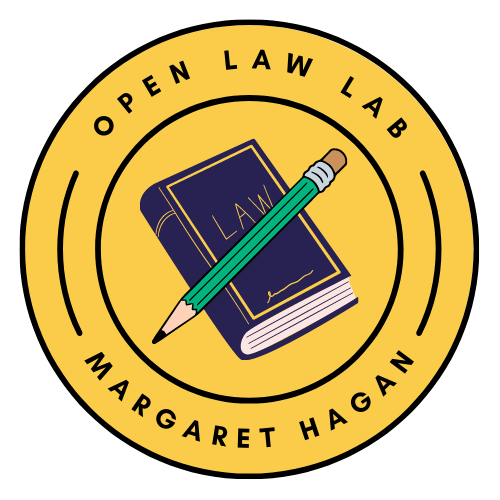
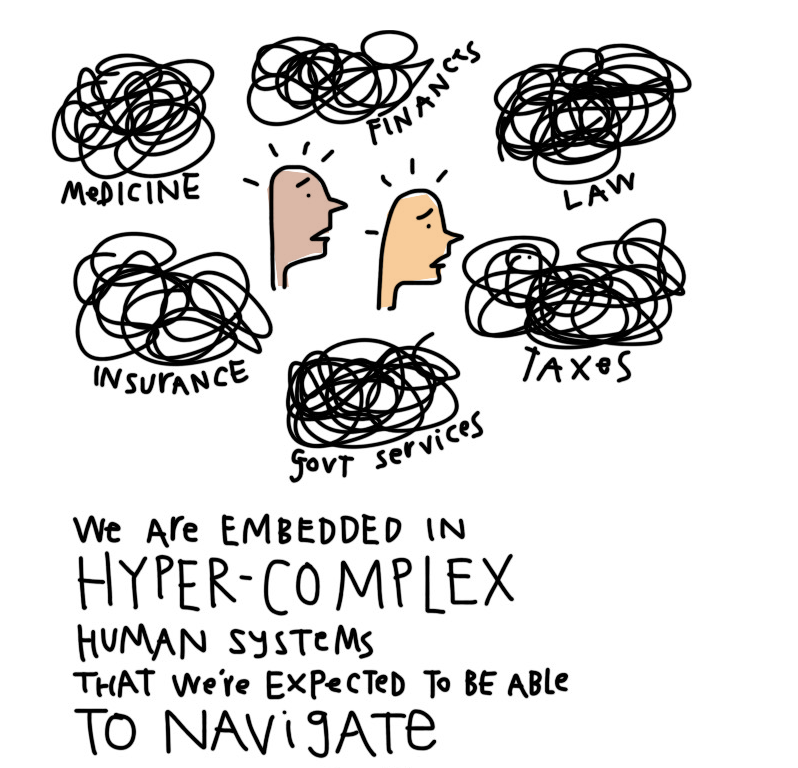
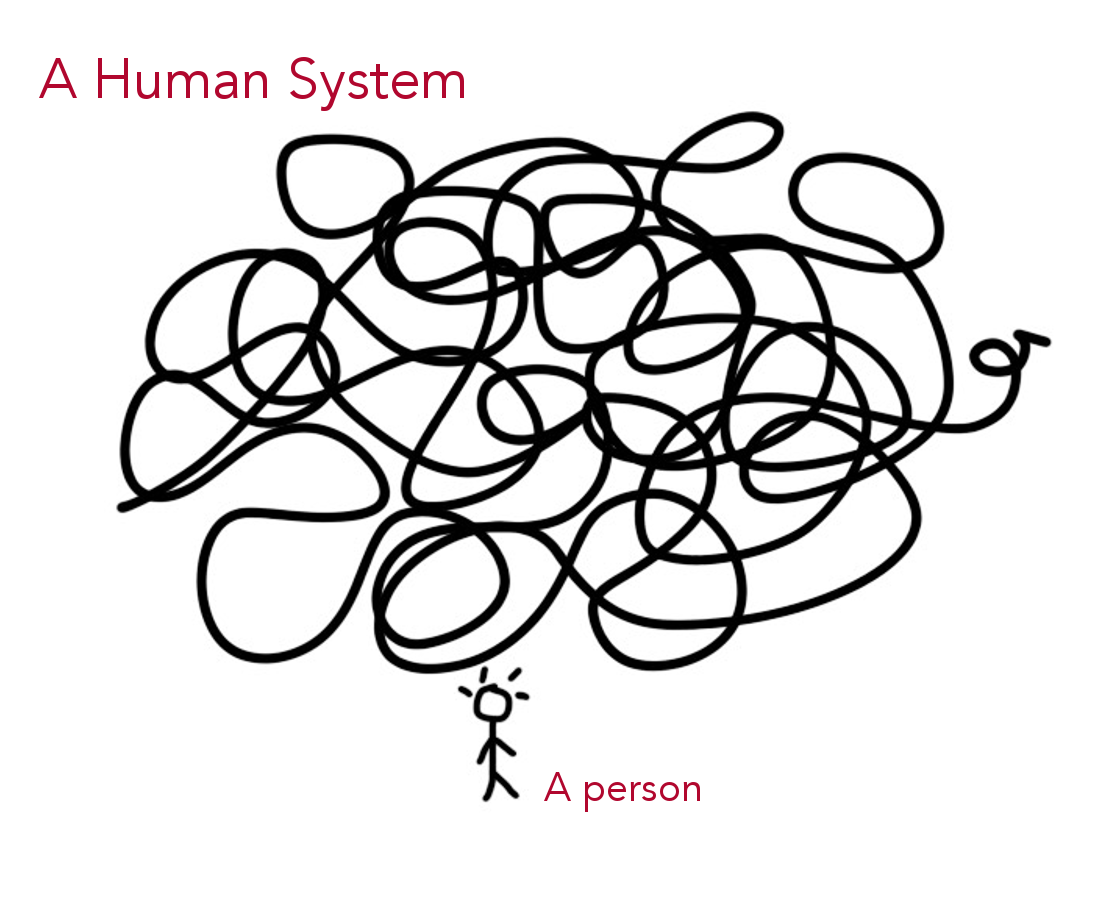
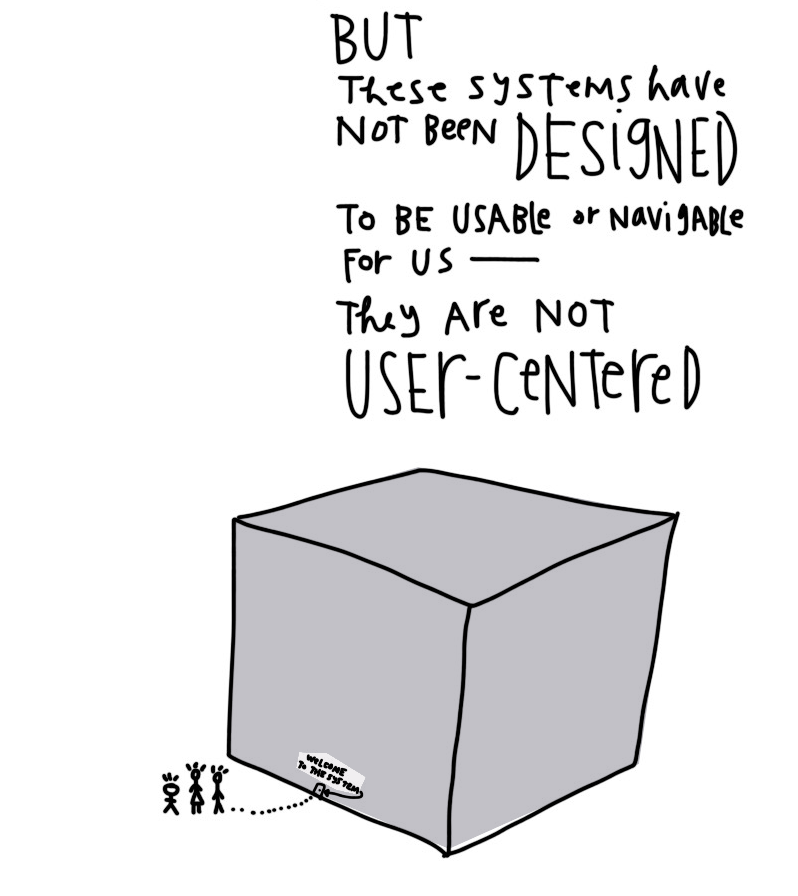
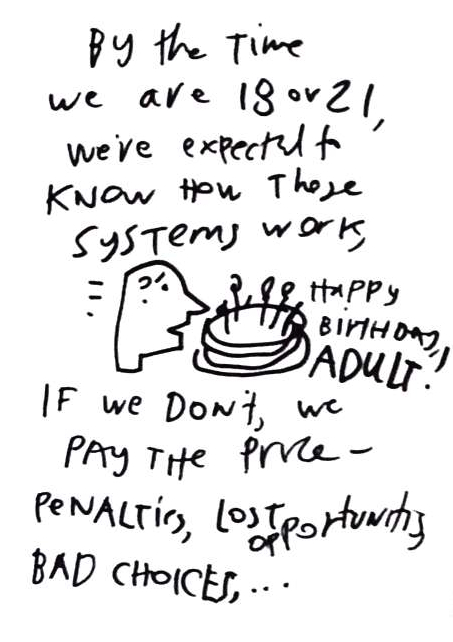
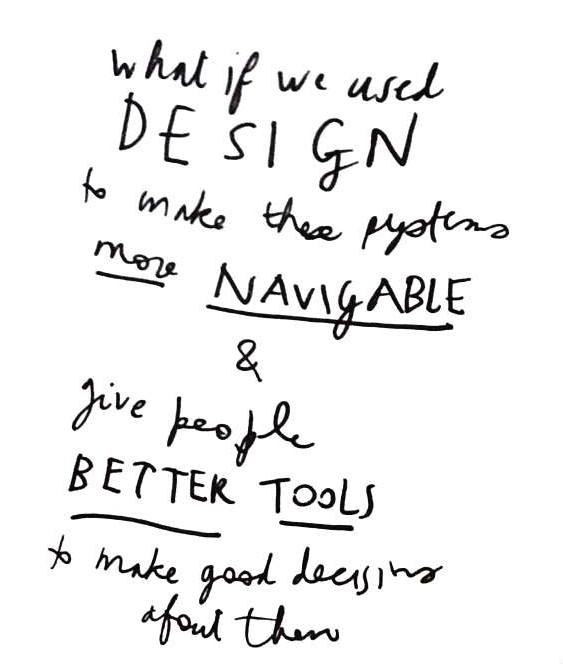
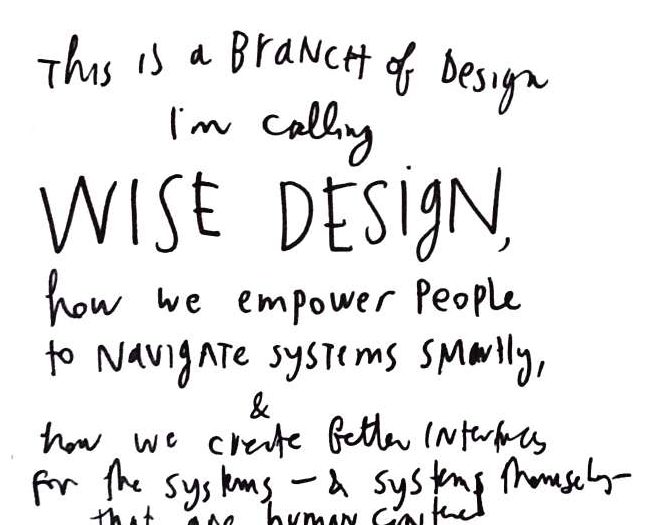
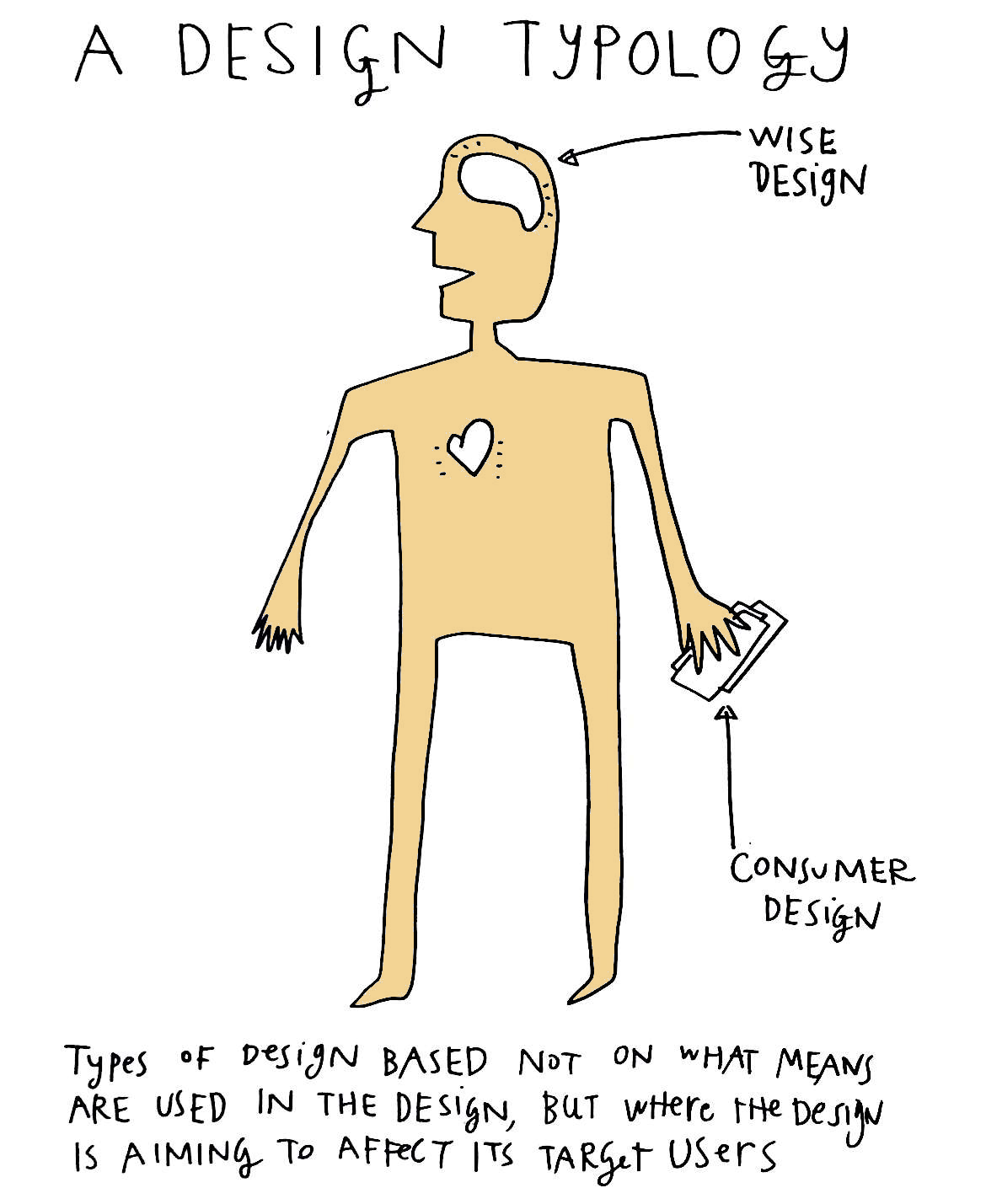
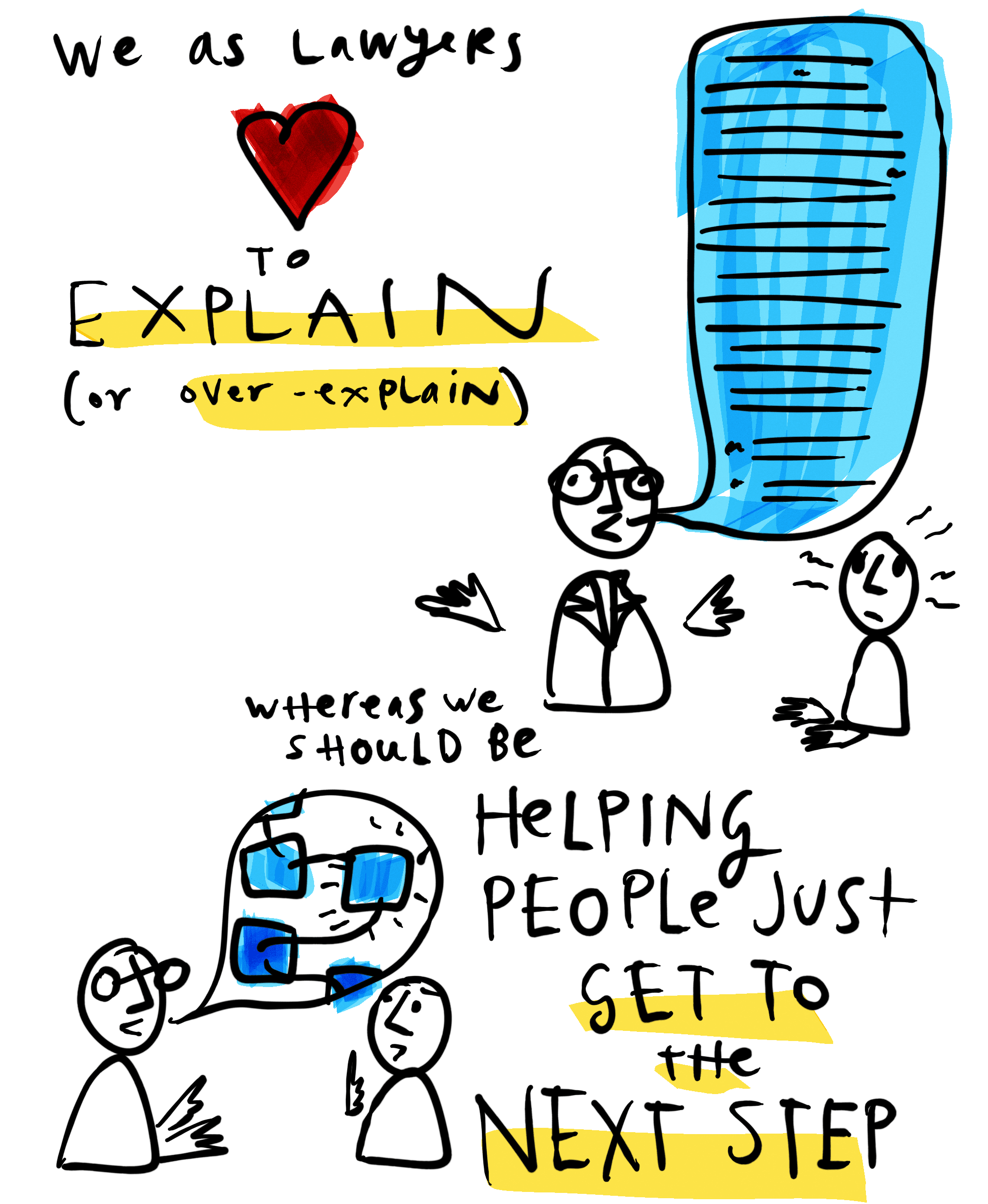
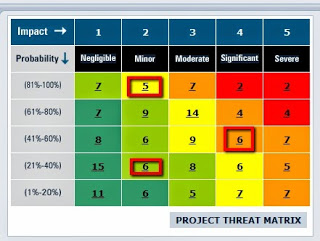
2 Comments
Inspiring ideas there. Next step is action. I would like to know more about building blocks, tools, standards and networks etc.
Excellent observations, Margaret. Most simply try to find their niche within the sick systems. You’re essentially stating the emporer wears no clothing. I concur. Would love to discuss a collaborative antidote to some of this madness. It’s inspired by the ideas of Bertrand Russell, Jeremy Rifkin, and Sir Ken Robinson. Please contact me if you have a few minutes.